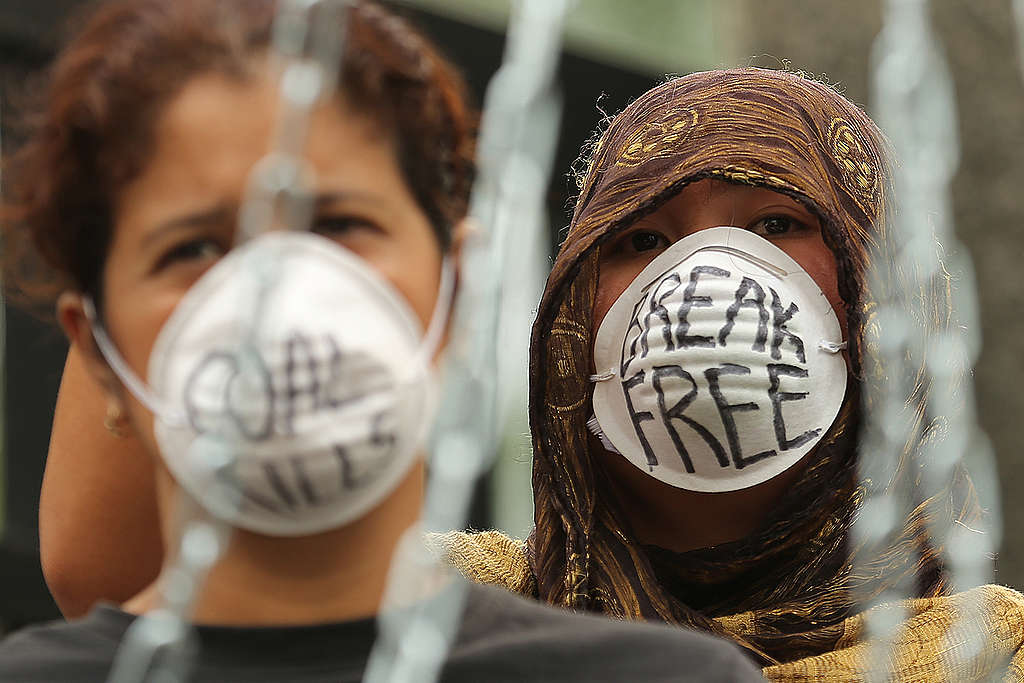Throughout the centuries, women have borne the disproportionate burden of economic instability. We're seeing it happen again right now: High energy prices are causing what the United Nations "the greatest cost of living crisis in a generation".
Of those parts of the population who are most impacted by poverty globally, women have been front and center. Already impacted by gender pay disparity, and the added work of home life and motherhood, women are especially vulnerable and growing more so. The gender poverty gap has continued to widen so much in the last decade, so much so it has been dubbed the "feminisation of poverty". This was only made much worse due to COVID-19, and now the energy crisis and its subsequent cost-of-living.
Access to clean energy determines development
Access to clean and modern energy is fundamental for human development and for gender equality. In rural communities without access to energy, women have to travel long distances to collect biomass, firewood and water which takes time from income-generating and educational activities and creates safety risks.
Cooking with open stoves that use biomass, kerosene, or coal exposes women and children to toxic smoke that is known to lead to chronic respiratory problems and death – a silent killer whose 85% of the 2 million global victims are women and children.
According to the International Energy Agency, the global population without access to electricity will increase for the first time in several decades and reach 774 million due to the energy crisis. The Agency also estimates that 100 million women would be forced back to using traditional fuels for cooking due to the high energy costs, all against the background of record-breaking profits made by fossil fuel companies.

Energy poverty causes health problems, even death
Even outside of a developing context, the energy crisis has serious health consequences for women that could lead to chronic diseases and death. Primarily due to energy poverty, more people die in winter, with several deaths directly linked to energy disconnections.
According to the World Health Organization, indoor cold kills 58,000 people in the EU each year. Causes include life threatening conditions like hypothermia, or a dependence on electronic devices to survive (i.e. oxygen machines), or by fire or carbon monoxide poisoning. European countries have some of the world's highest rates of "excess winter mortality": 29.4% in Malta, 28% in Portugal, 23.6% in Cyprus, 20.6% in Spain, 19.7% in Ireland and 18.6% in the UK.
All over the world, unequal power relations mean women are more impacted by energy poverty
It's clear that the gendered nature of energy poverty and its consequences are not unique to rural areas in less developed regions of the world. In Europe, where the gender pay gap is 13%, single mothers (85% of single-parent households in the EU are led by women) and women are hit harder than men by the energy crisis due to the gender pay gap and unpaid domestic and care work.
In the USA, women (particularly Black women) are more likely to experience energy poverty, which not only deepens gender inequality but also racial equality. Women experience poorer general and mental health and even face death more than men if suffering from energy poverty. This requires governments to develop gender sensitive policies to target energy poverty through an intersectional lens.
Today we are reminded of the patriarchal violence that the fossil fuel system imposes on far too many of us.
The only system we can rely on is our planet's ecosystems
#IWD2023
Let's #EndFossilCrimes
https://t.co/sdokuM38Hv
@aminaodofin, @lisagoeldner, @s_pastorelli pic.twitter.com/SbGxfNDprL
— Greenpeace International (@Greenpeace) March 8, 2023
Women must be a leading part of a just energy transition
Women are often left out of decision-making despite playing a key role in energy issues and the clean energy transition. Due to unpaid domestic work, women are the primary energy users at the household level but men often have power over household finances and decision-making.
But research has shown that women are generally environmentally friendlier and more energy efficient than men, while being more supportive of renewable energy and opposing fossil fuels. This is also reflected when women are in decision-making positions; an analysis shows that female legislators in the European Parliament are more likely to support pro-environmental legislation than men, also in examples of countries and companies with higher gender equality have better environmental performance. So it would benefit all of us, to support women to be empowered in decisive and leadership roles. However, in the EU countries only 26.8 % of government ministers responsible for policies on environment and climate change are women, while 73.2 % are men. In the energy sector, where women constitute only 22% of the workforce, women occupy only 12% of the leadership roles.
"I am still hoping my dream will come true and will continue advocating to see that change in Africa"@Greenpeaceafric's @FeukengLuchelle dreams of an Africa where women are safe and empowered to thrive #WomensHistoryMonth https://t.co/DN59YM6p9C
— Greenpeace International (@Greenpeace) March 19, 2023
For women and gender minorities to have the equality that they deserve, freedom from energy poverty must be considered a human right. Greenpeace believes that everyone should have access to affordable clean energy coming from renewable energy resources, and ensuring the human rights of women and gender minorities is key to achieve the just energy transition that is needed to get us there.
To find out how governments could help protect the vulnerable during the energy crisis, check out this blog.
Dr. Mehmet Börühan Bulut is an Energy Analyst at Greenpeace International






